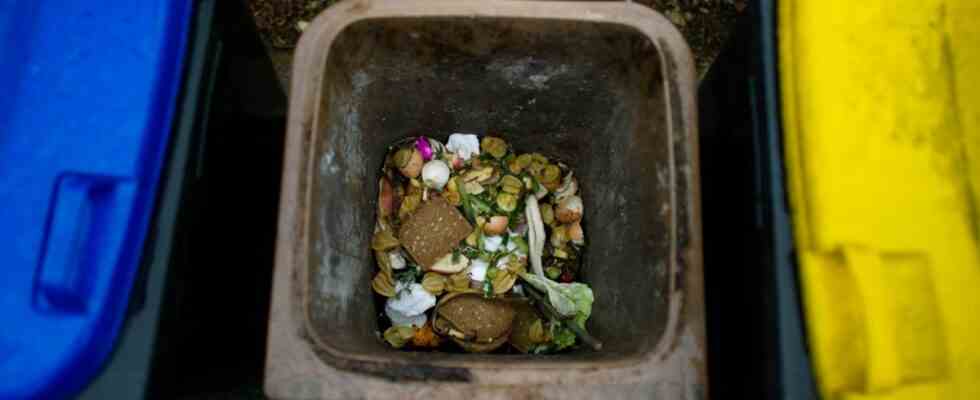What ends up in Munich’s organic waste bins sometimes travels quite a distance before banana peels or coffee grounds become biogas, electricity and earth. The fermentation plant in the disposal park (ESP) Freimann, which went into operation in 2003, processes 22,500 tons, almost half of the 47,000 tons of organic waste produced each year. What is otherwise not accepted by private disposal companies in the region sometimes has to be carted to Thuringia. The transported mass consists of up to 67 percent water, which further spoils the ecological balance.
The city wants to end this unsustainable practice and create more capacity for disposal in Munich. The operating license for the Freimann plant expires at the end of 2026 due to stricter environmental regulations, with an option to extend it until the end of 2027, when the funding from the Energy Feed-in Act (EEG) also ends. The municipal committee has now launched a new building that will cost around 50 million euros and should go into operation at the beginning of 2028, preferably on the ESP site in Freimann, or further east, on an area near the North landfill site between the Nuremberg autobahn and Freisinger Landstrasse.
In order to meet the requirements of the technical instructions (TA) for air, the new plant is to be completely enclosed and be able to process 54,000 tons of organic waste per year, i.e. 7,000 tons more than the city currently produces. In the long term, however, the city is also aiming to reduce the residual waste quota in favor of organic waste.
With a view to the opening date of 2028, there is not much time for further political preparation: the city council must definitely determine the location by the summer break. The two Freimann variants should be examined on an equal footing, even if the municipal department would prefer the solution on the third construction phase of the disposal park. However, the state government has a say in this, as it wants to keep the free part of the site free as a reserve area for a landfill with a capacity of 1.7 million cubic meters and would have to approve its use.
The eastern, smaller site is currently being used as a storage area by the Munich city council and would have to be purchased by the waste management company for 7.8 million euros. On the other hand, the long-discussed option of building the plant at the North thermal power station is finally off the table. Corresponding amendments from the Greens and ÖDP were rejected. The site is in the municipality of Unterföhring and is also completely overplanned, as municipal officer Kristina Frank (CSU) explained in the committee. According to Frank, it will only be possible to say from 2035 onwards whether a power plant unit can really be shut down in the future due to falling residual waste rates, as some applicants hope.
Only as an unloved emergency solution in the text of the decision is a cooperation with the municipal waste disposal company AVA KU in Augsburg, which would result in permanent organic waste tourism over a distance of 65 kilometers and would also need transshipment points close to the city. Soon after the summer break, the city councilors must then also decide on the technical variants, such as the choice of fermentation process. The city wants to strive for a cascade process: In order to optimize the yield of biogas, electricity, waste heat and soil, the material should be reused as often as possible within the plant.

